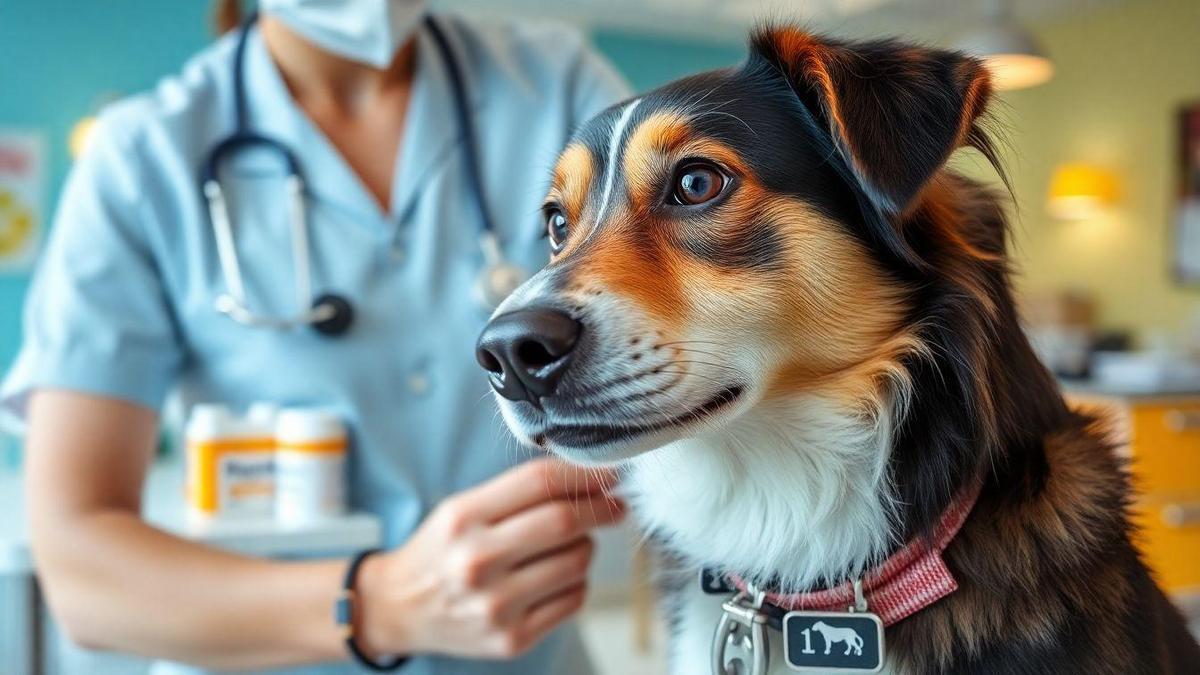Understanding Vaccines for Dogs: What Every Owner Should Know is crucial for keeping our furry friends safe and healthy. In this article, we will dive into the importance of vaccinations, discuss the benefits of protecting our pets from serious diseases, and explore both core and optional vaccines. We’ll also share tips on how to prepare for a vet visit, what happens during a vaccination, and how to maintain our dog’s vaccination timeline. Let’s make sure we keep our dogs happy and thriving together!
Understanding Vaccines for Dogs: Key Tips
- Vaccines keep our dogs safe.
- Our vet helps us choose the right shots.
- We stick to vaccine schedules for optimal protection.
- We monitor for any side effects after shots.
- Yearly boosters are necessary to maintain protection.
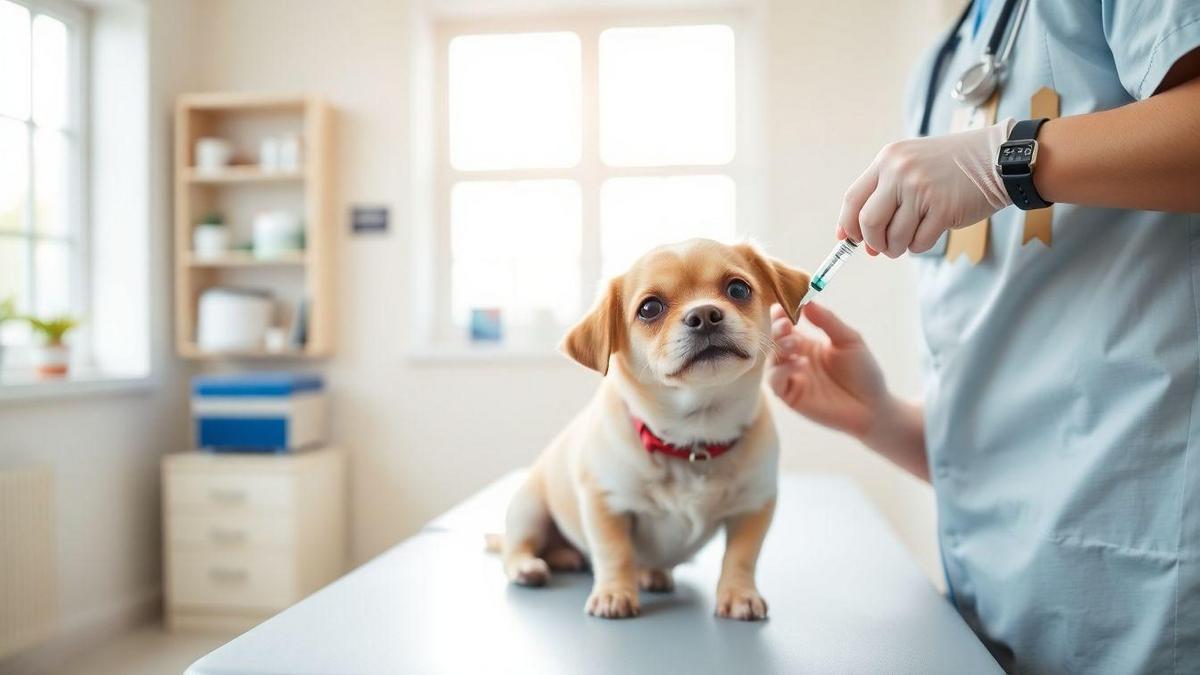
The Importance of Vaccinating Dogs
Why Vaccines Matter for Our Dogs
When we think about keeping our furry friends safe and healthy, vaccines play a crucial role. Just like we get our shots to avoid getting sick, our dogs need their vaccines too. These shots help protect them from various diseases that can cause serious health issues or even be life-threatening. By vaccinating our dogs, we’re not just protecting them; we’re also helping to keep other dogs and even people safe from diseases that can spread.
Understanding Vaccine-Preventable Diseases in Dogs
There are several diseases that vaccines can help prevent. Here’s a quick look at some of the most common ones:
| Disease | Symptoms | Vaccine Available |
|---|---|---|
| Parvovirus | Vomiting, diarrhea, lethargy | Yes |
| Distemper | Coughing, fever, runny nose | Yes |
| Rabies | Aggression, paralysis | Yes |
| Kennel Cough | Coughing, sneezing | Yes |
These diseases can be very serious. For example, Parvovirus can cause severe vomiting and diarrhea, leading to dehydration. It’s a tough battle for our pets, and sadly, some don’t survive. That’s why keeping up with vaccines is so important.
Protecting Our Pets from Serious Illness
By getting our dogs vaccinated on time, we’re taking a big step toward keeping them healthy. Vaccines are a simple way to shield our pets from illnesses that could change their lives forever. We often think of our dogs as part of the family, and just like we want to keep our loved ones safe, we should do the same for our pets.
When we visit the vet, we can ask about the vaccination schedule and any other preventative care our dogs might need. Regular check-ups and staying on top of vaccinations are key to ensuring our dogs live long, happy lives.
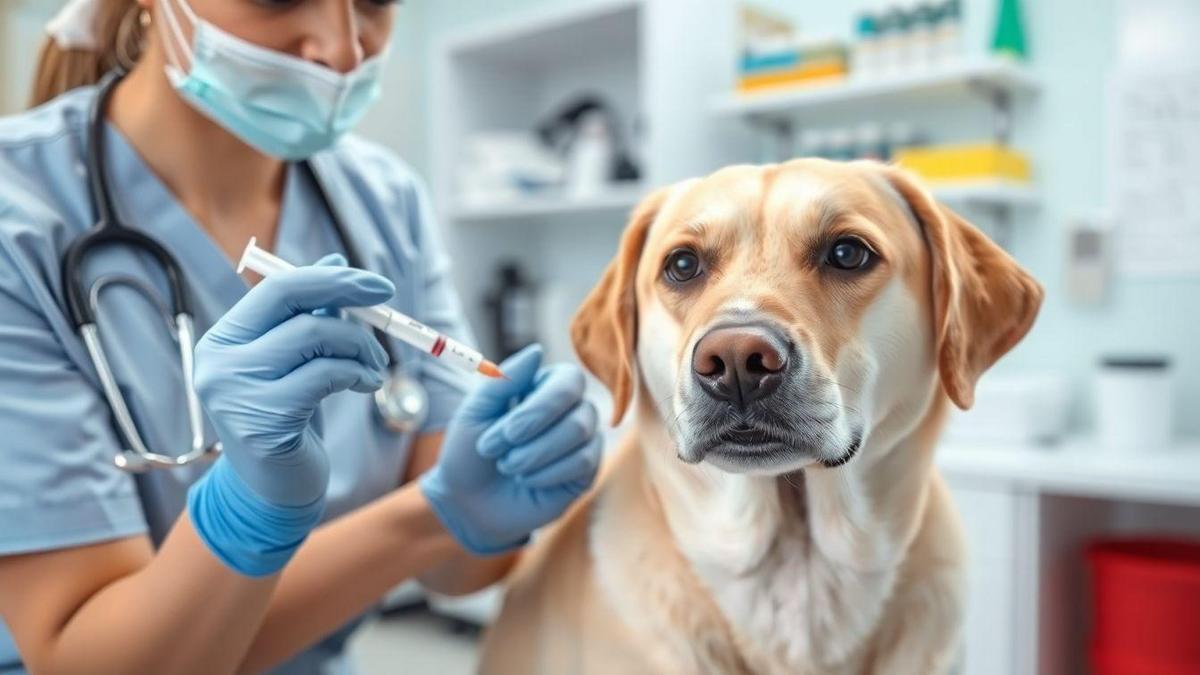
Common Dog Vaccines We Should Know About
Core Vaccines Every Dog Needs
When it comes to keeping our furry friends healthy, core vaccines play a crucial role. These vaccines protect our dogs from serious diseases that can be life-threatening. Here’s a quick rundown of the core vaccines we should all consider:
| Vaccine | Disease Prevented | Why It’s Important |
|---|---|---|
| Rabies | Rabies virus | Required by law; protects both dogs and humans. |
| Distemper | Canine distemper virus | Highly contagious; can lead to severe health issues. |
| Parvovirus | Canine parvovirus | Causes severe gastrointestinal illness; often fatal. |
| Adenovirus | Canine hepatitis | Affects the liver; can be deadly. |
These vaccines are usually given during puppyhood and require boosters throughout our dog’s life. It’s like giving our pups a superhero cape to fight off nasty germs!
Optional Vaccines: Are They Right for Us?
Now, let’s chat about optional vaccines. These are not mandatory but can be beneficial depending on our dog’s lifestyle and environment. Here are some of the common optional vaccines we might consider:
- Bordetella: Protects against kennel cough, especially if our dog is around other dogs often.
- Lyme Disease: Important if we live in an area where ticks are prevalent.
- Leptospirosis: Useful if our dog is exposed to standing water or wildlife.
Choosing these vaccines can be a bit like picking toppings for a pizza. We want to ensure we’re adding what’s best for our dog’s health, based on their individual needs.
Making Informed Choices About Vaccines
When it comes to vaccines, making informed choices is key. We can start by talking to our vet about our dog’s lifestyle, age, and health history. They can help us figure out the best vaccination plan tailored to our pooch.
It’s also important to stay updated on any new vaccines or changes in recommendations. The pet care world is always changing, and we want to keep our dogs protected.
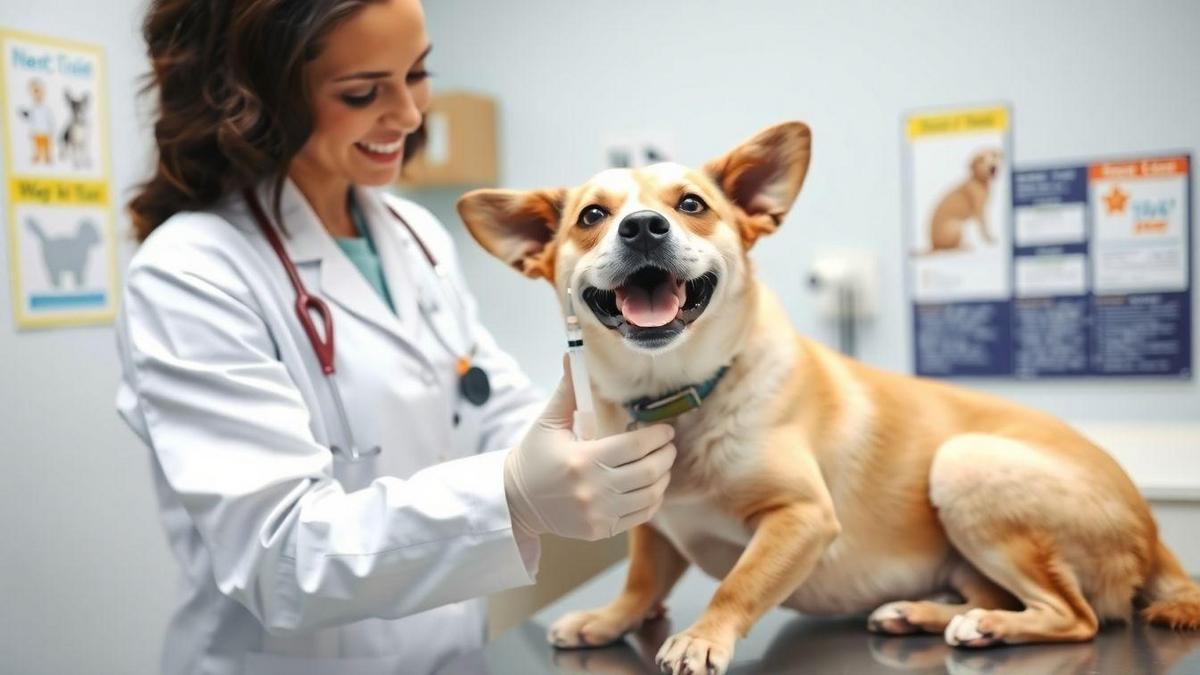
Understanding Dog Vaccinations: The Basics
What Happens During a Vaccination?
When we take our furry friends to the vet for a vaccination, it’s a pretty straightforward process. First, the vet will check our dog’s health to make sure they are feeling good. This might include looking at their eyes, ears, and overall energy. Then, they’ll give the vaccine, usually with a quick injection. It’s done in a flash! After that, our pup might need to stay at the clinic for a little while to ensure they don’t have any bad reactions.
How Vaccines Work to Protect Our Dogs
Vaccines are like a superhero cape for our dogs! They help train our dog’s immune system to fight off diseases. Here’s how it works:
- Exposure to a Safe Version: The vaccine contains a tiny, harmless piece of the disease. This could be a dead virus or a part of it.
- Immune Response: Our dog’s immune system sees this piece and starts to create defenses, like antibodies.
- Memory: If our dog ever encounters the real disease, their body remembers how to fight it off quickly.
The Science Behind Dog Vaccines
Now, let’s break it down a bit more. Vaccines help our dogs develop immunity. Here’s a simple table to show how vaccines are made and what they do:
| Type of Vaccine | Description | Purpose |
|---|---|---|
| Inactivated Vaccines | Contains killed viruses or bacteria | Trains the immune system |
| Live Attenuated Vaccines | Contains weakened forms of the virus | Provides a stronger immune response |
| Recombinant Vaccines | Uses pieces of the virus’s genetic material | Targets specific diseases effectively |
By getting our dogs vaccinated, we’re not just helping them; we’re also protecting other dogs and even people. It’s a team effort to keep everyone safe and healthy!
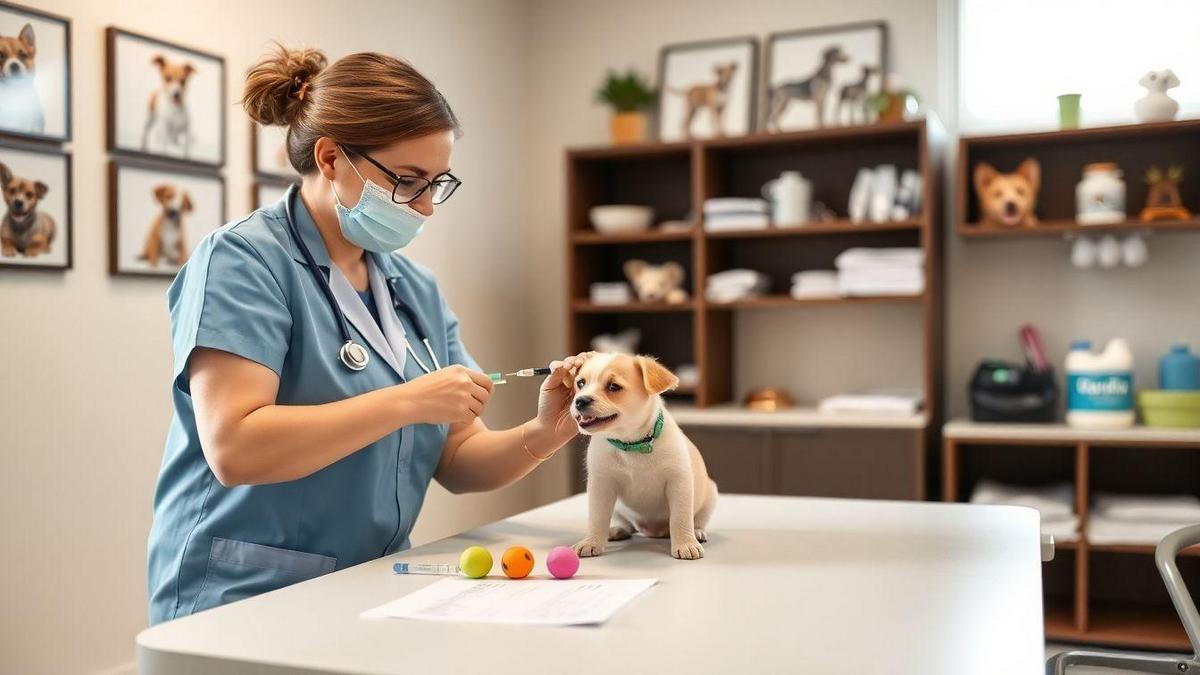
Dog Vaccine Schedule: When Should We Vaccinate?
Puppy Vaccination Guide: Starting Off Right
When we bring a puppy into our lives, we want to give them the best start possible. Vaccinations are a big part of that. Puppies usually need their first set of vaccines around 6 to 8 weeks old. This is when they start to build their immunity. Here’s a quick rundown of the essential vaccines our pups need:
| Age (Weeks) | Vaccine Type | Notes |
|---|---|---|
| 6-8 | DHPP (Distemper, Hepatitis, Parvovirus, Parainfluenza) | First round of shots |
| 10-12 | DHPP | Second round of shots |
| 12-16 | Rabies | Required by law in many areas |
| 12-16 | Bordetella (Kennel Cough) | Especially if they meet other dogs |
| 16 weeks | Leptospirosis | Optional but recommended |
Getting our puppies vaccinated on time is like giving them a shield against nasty diseases. So, let’s make sure we don’t miss these important dates!
Keeping Track of Our Dog’s Vaccination Timeline
Once our furry friends are a bit older, it’s crucial to keep track of their vaccinations. We can create a simple chart or use an app to help us remember when each shot is due. Having a visual reminder can help us stay on top of their health. Here’s a basic outline of what to track:
- Date of each vaccine
- Type of vaccine
- Next due date
- Vet’s notes or reminders
By keeping this information handy, we can easily monitor our dog’s health and make sure they stay protected.
Staying Up-to-Date with Vaccines for Dogs
As our dogs grow, they’ll need booster shots to keep their immunity strong. Most vaccines require boosters every 1 to 3 years, depending on the type. Regular check-ups with our vet can help us stay informed about what our dog needs. Here’s a quick list of vaccines that often require boosters:
- DHPP: Every 3 years after the initial series
- Rabies: Every 1 to 3 years, depending on local laws
- Bordetella: Every 6 to 12 months, especially if they visit dog parks or boarding facilities
Staying on top of our dog’s vaccination schedule helps keep them healthy and happy.
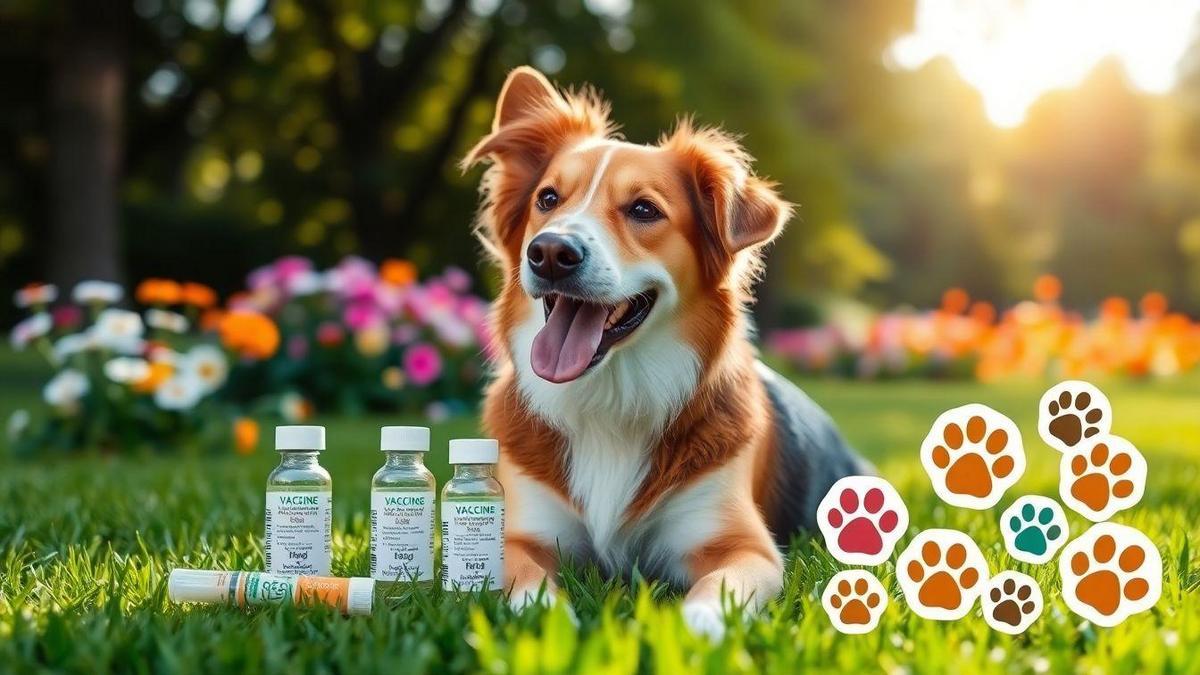
Benefits of Dog Vaccines for Our Pets
Keeping Our Dogs Healthy and Happy
When we think about our furry friends, the first thing that comes to mind is their health and happiness. Vaccines play a huge role in that. They help protect our dogs from serious diseases like rabies, parvovirus, and distemper. Just like we take our kids for their shots, our dogs need their vaccines too!
Imagine taking our pup to the park, watching them run and play without a care in the world. That joy comes from knowing we’ve done our part to keep them safe. Regular vaccinations can prevent illnesses that could lead to a lot of heartache.
How Vaccines Can Save Us Money in the Long Run
Now, let’s talk about money. We all know that vet bills can add up quickly. If our dog gets sick because they weren’t vaccinated, we could be looking at some hefty expenses. Vaccines might seem like an extra cost upfront, but they can save us a bundle over time.
Think about it this way: spending a little on vaccines now can prevent a big bill later. It’s like investing in our dog’s future health.
| Vaccine | Cost | Potential Treatment Cost |
|---|---|---|
| Rabies | $15-$30 | $500 |
| Parvovirus | $15-$30 | $1,000 |
| Distemper | $15-$30 | $1,500 |
The Long-Term Advantages of Vaccinating Our Dogs
Vaccinations do more than just protect our dogs. They also help create a safer community for all pets. When more dogs are vaccinated, the chances of diseases spreading decrease. This means our dogs can play with their friends without worry!
Also, many places, like dog parks and boarding facilities, require proof of vaccination. So, keeping our dogs up-to-date on their shots opens up more opportunities for fun and adventure.
In the long run, vaccines help our dogs live longer, healthier lives. They can enjoy more walks, playtime, and snuggles with us.
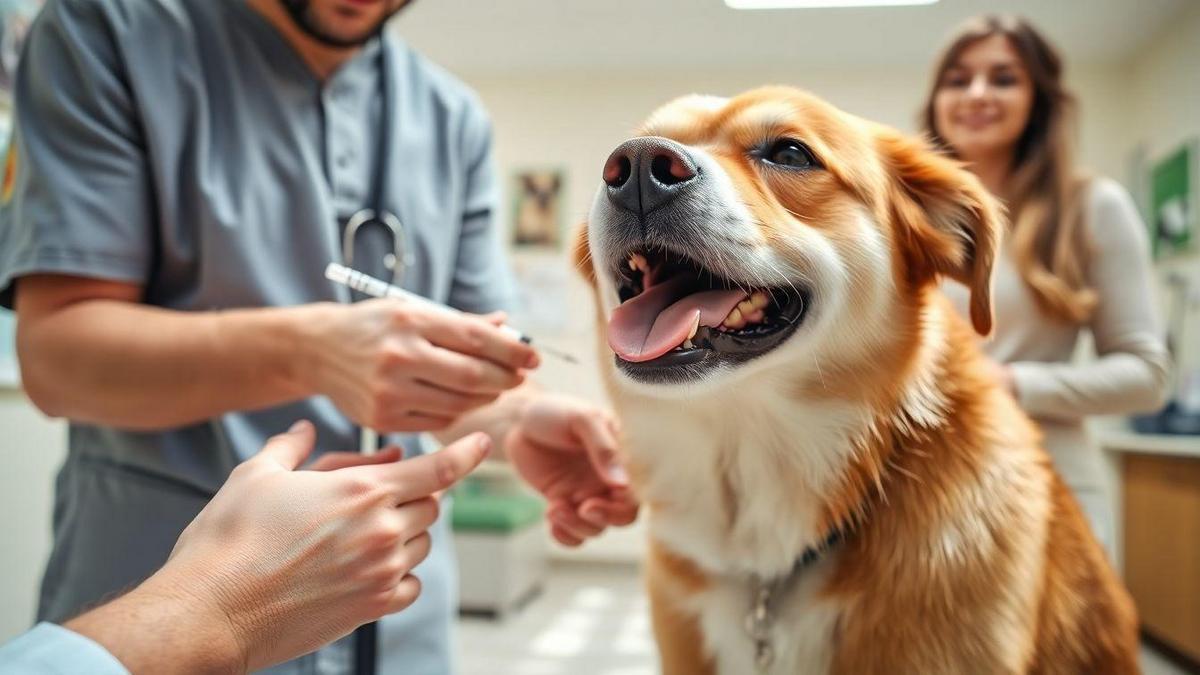
Dog Vaccination Tips for Responsible Owners
Preparing Our Dogs for Their Vaccination Visit
When it’s time for our dogs to get their vaccinations, we want to ensure they feel calm and safe. Preparing them can make a big difference. Here are some tips we can follow:
- Familiarize Them: Take our dog to the vet’s office a few days before the appointment. Let them sniff around and get used to the place. This can help reduce stress on the actual day.
- Stay Calm: Dogs can sense our feelings. If we’re nervous, they might feel the same. Let’s stay relaxed and positive.
- Bring Treats: A few of their favorite treats can make the visit more enjoyable. We can reward them for being brave!
What to Expect After Vaccination
After our dogs get their shots, we might notice some changes. Here’s what we should keep an eye out for:
- Mild Reactions: It’s common for dogs to feel a bit tired or have a sore spot where they got the shot. This usually goes away quickly.
- Watch for Side Effects: While serious side effects are rare, we should monitor our dogs for any unusual behavior, like excessive whining or not eating. If we notice anything concerning, it’s best to call the vet.
| Common Reactions | Duration |
|---|---|
| Tiredness | 1-2 days |
| Soreness | 1-3 days |
| Fever | 1-2 days |
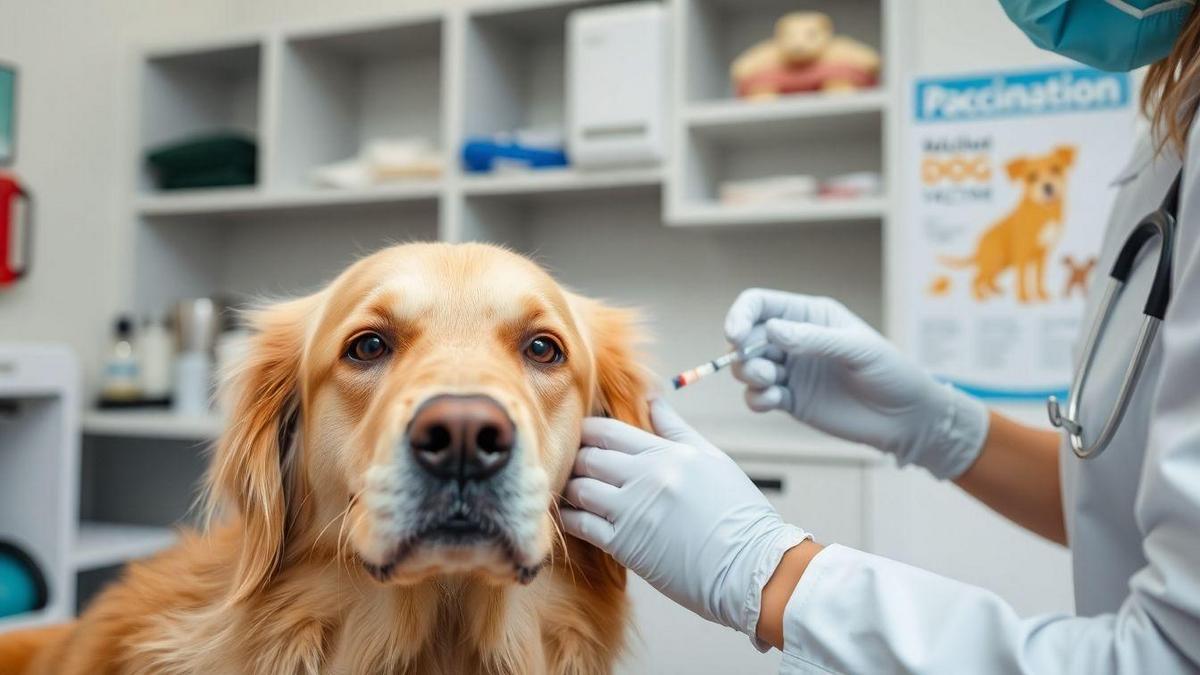
Understanding Vaccines for Dogs: What Every Owner Should Know
Debunking Myths About Dog Vaccinations
When we think about vaccinations for our furry friends, a lot of myths pop up. Let’s clear a few things up!
- Myth: Vaccines are only for puppies.
Truth: Dogs need vaccines throughout their lives, not just when they are young. Regular boosters are key to keeping them healthy.
- Myth: Vaccines cause all sorts of problems.
Truth: Serious side effects are rare. Most dogs handle vaccinations like champs. The benefits far outweigh the risks.
- Myth: If my dog seems healthy, they don’t need vaccines.
Truth: Even healthy dogs can get sick. Vaccines help protect them from diseases that can be serious or even deadly.
By understanding these myths, we can make better choices for our dogs’ health.
The Role of Our Veterinarian in Vaccination Decisions
Our veterinarian plays a critical role in deciding what vaccines our dogs need. They know our dog’s health history and can tailor a vaccination plan that fits our pet’s lifestyle.
- Age: Puppies have different needs than older dogs.
- Lifestyle: If our dog is often around other dogs, they might need extra protection.
- Health Conditions: Some dogs may have conditions that require special attention.
Having an open conversation with our vet can help us feel confident in our decisions.
Building a Strong Relationship with Our Vet
A good relationship with our vet is like having a trusted friend in our dog’s health journey. Here are some ways to strengthen that bond:
- Regular Visits: Routine check-ups keep us informed about our dog’s health.
- Ask Questions: There’s no such thing as a silly question. If we’re unsure about something, just ask!
- Share Concerns: If we notice any changes in our dog’s behavior or health, bringing them up can help our vet provide the best care.
By building this relationship, we can work together to keep our dogs healthy and happy.
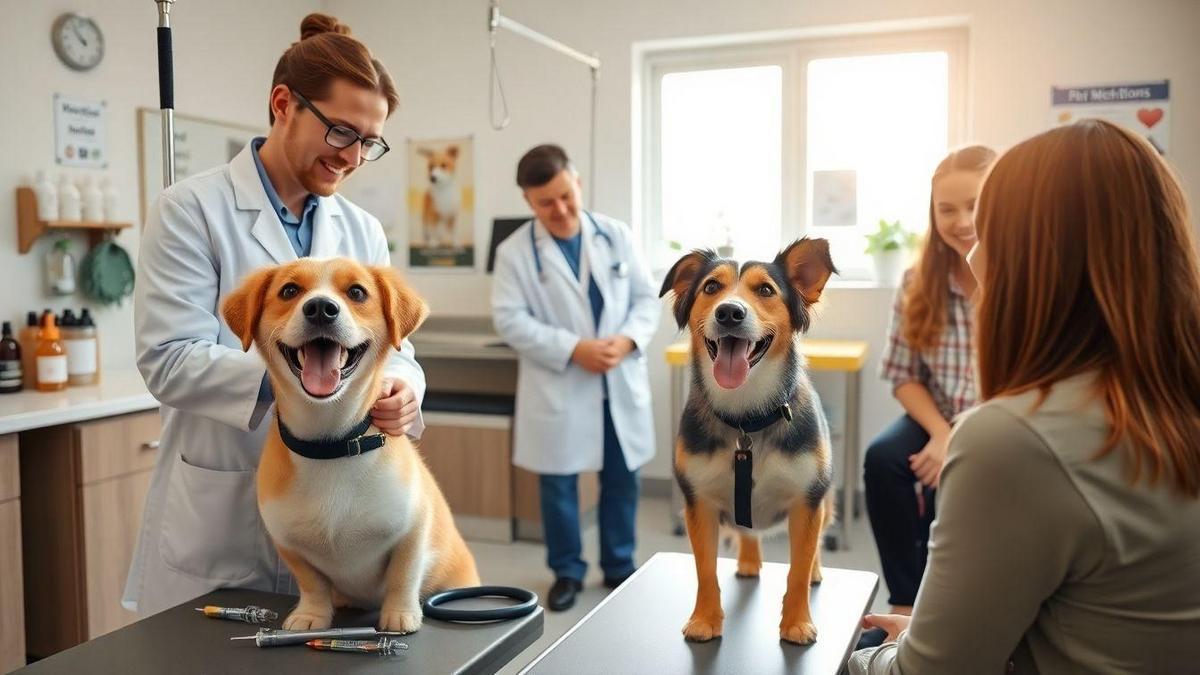
Grooming and Overall Well-Being in Relation to Vaccines
How Grooming Affects Our Dog’s Health
Grooming is more than just making our furry friends look good. It plays a big role in their overall health. Regular grooming helps us spot any skin issues or lumps that could be signs of health problems. When we brush our dogs, we also help keep their coat clean and free from dirt and parasites.
Did you know that grooming can even improve our dog’s mood? A good brushing can feel like a mini-massage! It helps them relax and can even strengthen the bond we share with them. Plus, it’s a great way to check for fleas or ticks, which can lead to bigger health issues if not caught early.
The Connection Between Vaccines and Overall Wellness
Vaccines are crucial for keeping our dogs healthy. They protect against serious diseases like parvovirus and rabies. Just like we get shots to prevent illness, our dogs need vaccines too. Keeping up with their vaccination schedule is a big part of their well-being.
Here’s a simple table to show how vaccines benefit our dogs:
| Vaccine | Prevents | Importance |
|---|---|---|
| Distemper | Serious respiratory issues | Helps prevent life-threatening diseases |
| Parvovirus | Severe gastrointestinal issues | Essential for young puppies |
| Rabies | Deadly viral infection | Required by law in many places |
| Bordetella | Kennel cough | Important for social dogs |
When we make sure our dogs are vaccinated, we’re not just protecting them; we’re also helping to keep other dogs safe. It’s all about creating a healthy community for our pets.
Keeping Our Dogs Happy and Healthy Through Care
Taking care of our dogs means more than just feeding and walking them. It involves a mix of grooming, regular vet visits, and keeping up with vaccinations. Each part of this care plays a vital role in their happiness and health.
For example, after a good grooming session, we might notice our dog is more lively and playful. And when we keep up with their vaccines, we’re giving them the best chance to live a long, happy life.
In short, grooming and vaccinations go hand in hand. When we take care of these aspects, we’re setting our dogs up for success in their health journey.
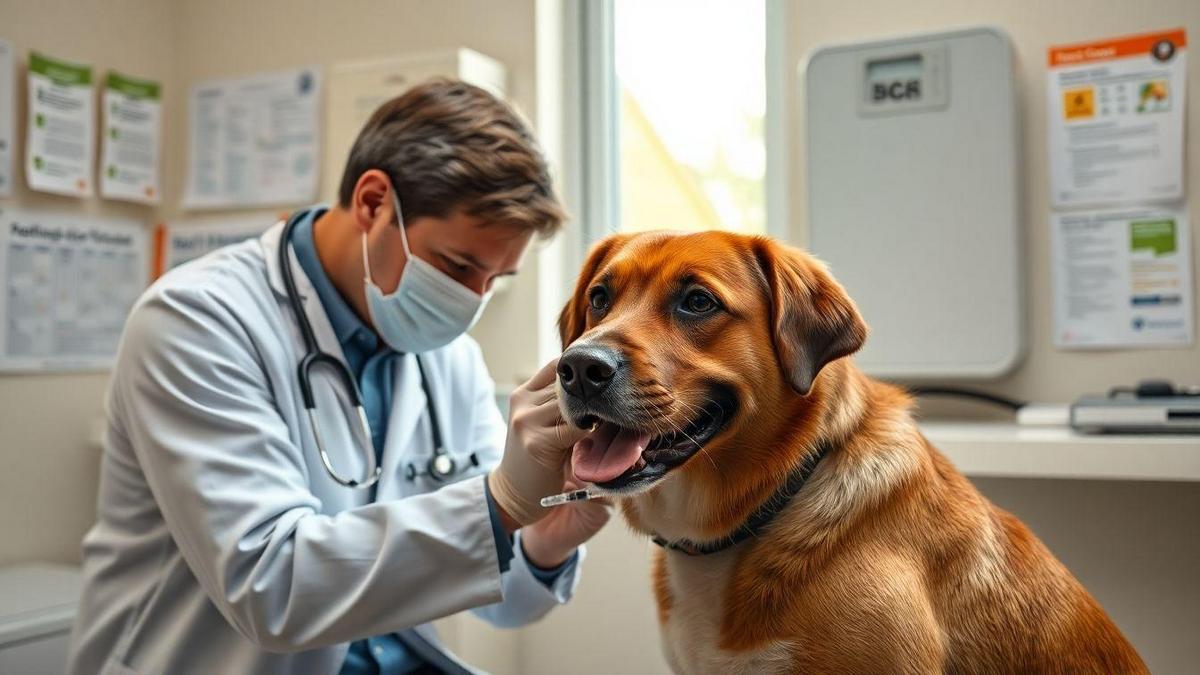
The Role of Veterinary Care in Dog Vaccination
Why Regular Vet Visits Are Essential
When we think about keeping our furry friends healthy, regular vet visits are at the top of the list. These check-ups are like a health check-up for us, but for our dogs. They help catch any potential issues early on. Just like we wouldn’t skip our own doctor’s appointments, we shouldn’t skip our dog’s.
Here are some reasons why these visits are so important:
- Early detection of health problems
- Keeping their vaccinations up to date
- Getting advice on diet and exercise
- Discussing any behavioral concerns
How Our Vet Can Help with Understanding Vaccines for Dogs
Understanding vaccines for dogs is crucial. Our vet is our best resource for this. They can break down what each vaccine does and why it matters. For instance, some vaccines protect against common diseases like parvo and rabies.
Our vet can help us understand:
- Which vaccines our dog needs
- The best schedule for vaccinations
- Any side effects we should watch for
Collaborating with Our Vet for Optimal Dog Health
Working together with our vet is key to keeping our dogs healthy. It’s a team effort! We can ask questions, share our concerns, and get tailored advice.
Here’s how we can collaborate effectively:
| Step | Action |
|---|---|
| Prepare for Visits | Write down questions before the appointment |
| Follow Recommendations | Stick to the vaccination schedule |
| Share Observations | Talk about any changes in behavior or health |
By partnering with our vet, we can make sure our pups get the best care possible.
Conclusion
In wrapping up our discussion on vaccines for dogs, it’s clear that staying informed and proactive is essential for our furry companions’ health. By understanding the importance of vaccinations, we can protect our dogs from serious diseases and ensure they lead happy, vibrant lives. Remember, regular vet visits and sticking to a vaccination schedule are our best bets for keeping our pups safe.
As we continue this journey together, let’s keep the lines of communication open with our veterinarians and make informed decisions tailored to our dogs’ unique needs. After all, a healthy dog is a happy dog!
If you found this article helpful, why not check out more insightful pieces at Redeversatil? Let’s keep learning and growing together for the sake of our beloved pets!
Frequently asked questions
What vaccines do our dogs really need?
We need to make sure our dogs get the core vaccines. These usually include rabies, distemper, parvo, and adenovirus. They help keep our pups safe from serious illnesses.
How often should we vaccinate our dogs?
We should follow the vet’s schedule. Most core vaccines are given as puppies and then again every 1 to 3 years. Non-core vaccines depend on our dog’s risk.
Are there side effects of vaccines for dogs?
Yes, just like us, dogs can have side effects. Most are mild like soreness or tiredness. Serious reactions are rare but we should always monitor our pups after vaccination.
Why is understanding vaccines for dogs important?
Understanding vaccines for dogs is key to keeping our furry friends healthy. It protects them from dangerous diseases. Every owner should know this to make informed choices for their pets.
